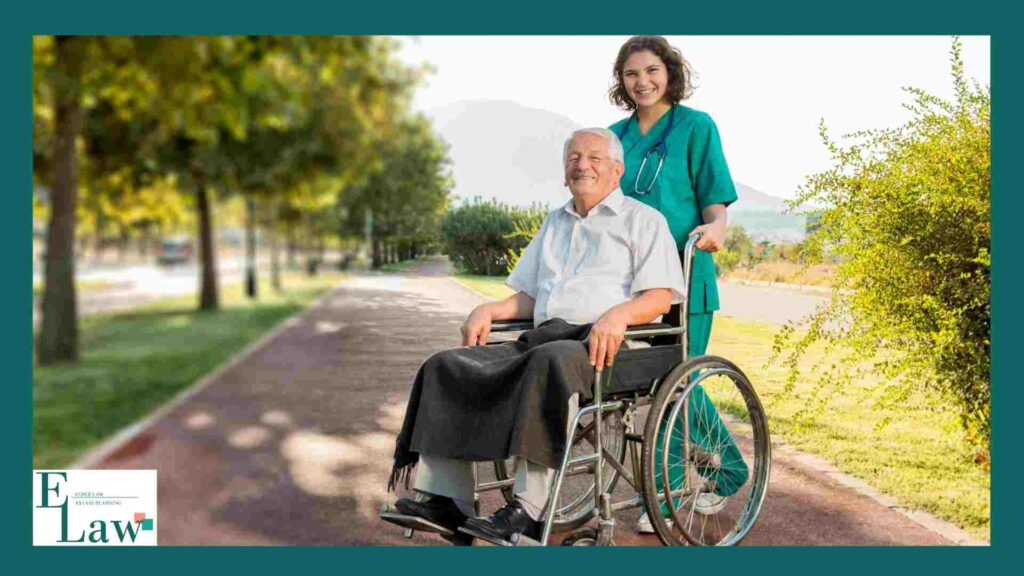As our loved ones age, daily tasks that once seemed simple, such as bathing, dressing, and eating, can become difficult. These tasks, known as Activities of Daily Living (ADLs), are essential for maintaining independence. When ADLs become a challenge, it’s time to consider options for assistance and care. An Alamogordo elder law attorney can guide you through the legal and financial steps to ensure your loved one gets the care they need.
What Are Activities of Daily Living (ADLs)?
ADLs are basic self-care tasks that allow individuals to live independently. These include:
- Bathing and Personal Hygiene – The ability to wash oneself and maintain cleanliness.
- Dressing – The ability to choose and wear appropriate clothing.
- Eating – The ability to feed oneself, though meal preparation may still require help.
- Toileting – The ability to use the restroom and manage hygiene.
- Mobility – The ability to move from one place to another, including getting out of bed or moving around the house.
How to Assess Your Loved One’s ADLs
According to A Place for Mom, assessing your loved one’s ability to perform ADLs is the first step in determining their care needs. Start by observing their ability to complete ADLs. Keep track of any difficulties they encounter with daily routines, and note any patterns of decline. Checklists are useful tools for monitoring changes over time. If you notice significant challenges, it may be time to seek professional help.
What Are Instrumental Activities of Daily Living (IADLs)?
In addition to ADLs, it’s important to consider Instrumental Activities of Daily Living (IADLs), which are more complex tasks that support independent living. These include managing finances, preparing meals, handling transportation, and taking medications. Similar to ADLs, when these tasks become difficult, additional care may be necessary to help maintain your loved one’s quality of life. Consider as well the suitability of a senior’s home environment for aging and increased care needs. Read our article, How to Age in Place
When Should You Seek the Help of an Alamogordo Elder Law Attorney?
It’s natural to want to maintain independence for as long as possible, but sometimes professional assistance becomes necessary. In some cases, simple home modifications can help, while in others, caregivers or in-home care services may be needed. Common challenges and solutions include:
Mobility Issues – If your loved one struggles with moving around the home, mobility aids like walkers or handrails can provide support.
Challenges with Hygiene – If bathing or dressing becomes difficult, bathroom modifications or in-home care assistance may be required.
Trouble Eating – If your loved one has difficulty feeding themselves, a meal preparation service can ensure they maintain a proper diet.
Cognitive Decline – Memory problems or confusion can interfere with completing ADLs and IADLs. Professional home care may be necessary in these cases.
How to Plan for Senior Care and ADL Assistance
Planning for ADL assistance requires open communication, careful planning, and consideration of both your loved one’s needs and financial resources.
Here are some steps to help you get started:
Talk with Your Loved One – Have an open and honest conversation about their needs and concerns. This helps them feel more comfortable with the idea of receiving help.
Consult Healthcare Providers – Speak with your loved one’s doctors to assess their abilities and get recommendations for care.
Create a Care Plan – Develop a plan with your loved one and their healthcare team that addresses specific needs, from assistance with ADLs to professional care options.
Explore Local Care Options – Depending on the level of care needed, research in-home care services or assisted living communities in Alamogordo. Visit facilities and speak with providers to find the best fit.
Discuss Financial Arrangements – Determine how the cost of care will be covered. Explore savings, insurance options, and government programs that can help with care expenses. It may also be worthwhile to consider long-term care insurance.
Address Legal Matters – An Alamogordo elder law attorney can assist with essential legal documents, such as powers of attorney and healthcare directives, to ensure decisions can be made on your loved one’s behalf.
Contact an Alamogordo Elder Law Attorney for Help
Caring for an aging loved one can be overwhelming, but you don’t have to navigate this journey alone. If your loved one is struggling with ADLs, now is the time to plan for their future. Working with an experienced Alamogordo elder law attorney can help you create a comprehensive care plan that provides peace of mind for your family.
At E-Law, we’re dedicated to helping families in Alamogordo and surrounding areas with elder care planning, legal documentation, and support for long-term care. Elder law attorney Michele Ungvarsky’s personal experience caring for her father, who developed early dementia, gives her a deep understanding of the emotional and financial toll a severe illness can take without proper planning. Having witnessed firsthand how quickly medical costs drained her parents’ retirement accounts, Michele is passionate about helping other families avoid similar struggles by ensuring they have a solid plan in place for senior care. Contact us today to request a discovery call and learn how we can assist you in ensuring your loved one receives the care they deserve.
Key Takeaways:
- Recognize ADL Challenges: Be aware of signs that your loved one may need assistance with daily tasks.
- Assess Needs: Use checklists and professional evaluations to determine care requirements.
- Plan Ahead: Develop a care plan, explore options, and address financial and legal considerations.
- Seek Guidance: Work with a qualified Alamogordo elder law attorney professionals to navigate care decisions and legal planning. Call E-Law today to learn how we can help your family plan for your loved one’s care needs.



